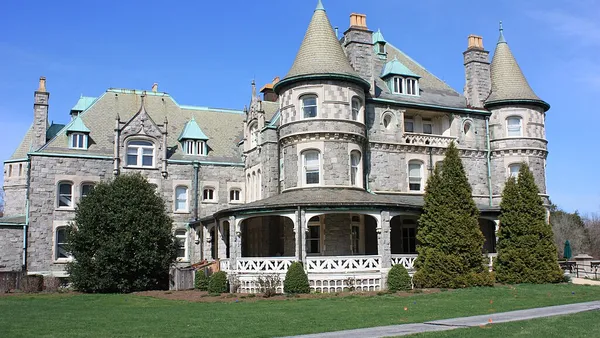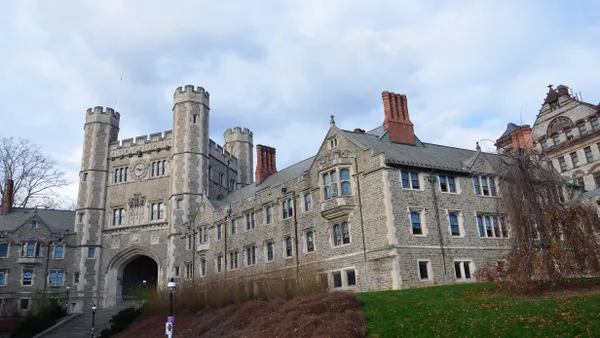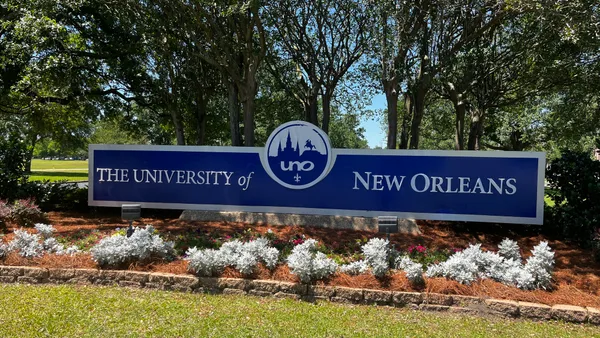Dive Brief:
- Kansas' public four-year colleges will need to phase out some undergraduate degrees after their state governing board initiated a program review earlier this month.
- Under a plan from the regent board, staff this summer will identify undergraduate programs older than five years that do not meet certain benchmarks, such as those that fail to graduate an average of 10 students over four years.
- In September, a board committee will finalize the list of programs on the chopping block. And by March 21 next year, the four-year universities will need to give recommendations on discontinuing, merging or more closely monitoring those degrees.
Dive Insight:
Research shows that states continued to invest more in higher education last year. But public institutions are still staring down tough economic conditions, including federal COVID-19 relief aid running dry.
Such is the case with the University of Nebraska system, which is pursuing aggressive belt-tightening in the face of a $58 million budget hole. The flagship West Virginia University has also estimated a $45 million deficit for the upcoming academic year. WVU is merging several of its colleges and recently approved a budget plan that will cut about 130 employees.
Kansas officials have said the need for a program review partially stems from declining enrollment. Enrollment at Kansas public colleges’ fell to 219,604 students in fall 2022, dropping 15% over a decade.
The review will start this summer, when staff will pick out the undergraduate programs that do not meet two or more of certain metrics.
Programs — based on a four-year average – must have at least 25 juniors or seniors who majored in them, have graduated at least 10 students, and have just over half of their students working in the region after graduation. Five years after graduation, students must also have a median annual salary of $38,050 or more.
At a September meeting, a board committee will decide whether programs that fail that test have “a mission-critical function.”
The remaining programs on the board’s list will be evaluated by the public four-year institutions, and they must suggest whether to develop a plan to improve them, merge them with another degree, or nix them altogether.
In late spring 2024, the board will rely on those recommendations to decide whether to eliminate programs.
Each public institution will need to present similar program reviews to the board in the future
Academic cuts would likely roil Kansas’ public campuses. Backlash already emerged when one of the public four-year colleges, Emporia State University, cut at least 30 tenure or tenure-track professors last year amid financial concerns.
It also scaled back degree programs like English and journalism. The austerity measures drew condemnation last month from the faculty group the American Association of University Professors, which said Emporia State’s leaders had flouted academic freedom.
Emporia State said it did not agree with AAUP’s assessment.
The faculty cuts also have embroiled Emporia State in a legal battle. Though a state agency ordered that the university reinstate five professors it fired, Emporia State is now asking a district court to uphold its original decision.
Critics told local press they viewed Emporia State’s moves as a test case for cuts at Kansas’ other public universities.















